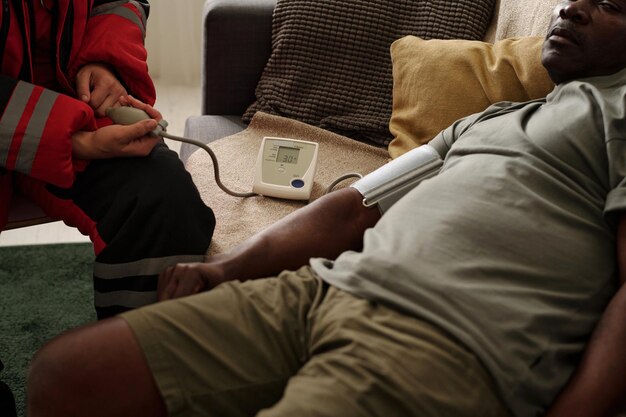Your Guide to Can Birth Control Cause Hypertension
What You Get:
Free Guide
Free, helpful information about HyperTension FAQ and related Can Birth Control Cause Hypertension topics.
Helpful Information
Get clear and easy-to-understand details about Can Birth Control Cause Hypertension topics and resources.
Personalized Offers
Answer a few optional questions to receive offers or information related to HyperTension FAQ. The survey is optional and not required to access your free guide.
Can Birth Control Lead to Hypertension? Here's What You Need to Know
Birth control is a powerful tool for women, offering control over reproductive health, regulating periods, and even addressing hormonal imbalances. However, like any medication, it’s crucial to understand its potential side effects. A common question is whether birth control can cause hypertension, or high blood pressure. Let’s dive into the facts and explore this connection.
Understanding Birth Control and Blood Pressure
Most birth control pills contain synthetic hormones like estrogen and progesterone. These hormones effectively prevent pregnancy by inhibiting ovulation and altering the uterine lining. However, they can affect the cardiovascular system, leading to potential increases in blood pressure.
Hormonal Influence on Blood Pressure
Estrogen in birth control pills can cause the body to retain fluid, which might increase blood volume and elevate blood pressure. Additionally, estrogen can affect how the body handles salt – another factor in raising blood pressure. The risk of hypertension varies depending on the type and concentration of hormones in the contraceptive.
Who is at Risk?
While not everyone will experience heightened blood pressure on birth control, certain individuals may be more vulnerable:
- Age: Women over 35 are at a higher risk, especially if they smoke.
- Personal Health History: Those with a history of hypertension or cardiovascular issues.
- Weight: Being overweight can compound the risks.
- Family History: A family history of hypertension can increase susceptibility.
Monitoring and Managing Risks
If you're on birth control, it's crucial to monitor your blood pressure regularly. Many healthcare providers recommend checking blood pressure before starting a new contraceptive method and at regular intervals thereafter. If you’re concerned about blood pressure, speak with your healthcare provider. They may suggest switching to a lower-dose hormone option or considering non-hormonal methods, such as copper IUDs.
Bridging to Broader Topics
Dealing with medical expenses can be challenging, particularly if changes in health demand alterations in treatment. Navigating insurance and the cost of medication can compound the stress for individuals already managing health concerns, such as hypertension. Fortunately, there are various resources available to ease the financial burden.
Financial and Educational Assistance Opportunities
Whether you need help paying for medical treatments or want to switch birth control methods, exploring financial assistance is essential. Government programs and educational grants offer invaluable support:
- Medicaid: Provides healthcare coverage for low-income individuals, including contraceptives and blood pressure medications.
- State Family Planning Programs: Many states offer free or low-cost reproductive health services.
- Affordable Care Act (ACA) Subsidies: Assist with insurance costs, ensuring access to necessary medications.
- Pharmaceutical Assistance Programs: Several drug manufacturers offer discounts or free medication to those who qualify.
- Educational Grants: Available for those seeking to enhance their qualifications in healthcare, public health, and related fields.
Here’s a quick guide to financial resources that might ease your burden and provide access to better healthcare and educational opportunities:
- 💊 Prescription Assistance Programs: Check if you qualify for reduced-cost birth control or hypertension medication.
- 🏥 Medicaid: Apply if you meet low-income criteria for comprehensive healthcare coverage.
- 📚 Educational Grants: Pursue studies in health-related fields with available scholarships and grants.
- 🤝 State Programs: Explore state-specific options for reproductive health services and financial aid.
- 💰 Debt Relief & Credit Solutions: Access financial counseling to manage existing medical bills effectively.
By understanding the potential connection between birth control and hypertension, you can make informed decisions about your health while accessing the resources you need to maintain both wellness and financial stability.
What You Get:
Free HyperTension FAQ Guide
Free, helpful information about Can Birth Control Cause Hypertension and related resources.

Helpful Information
Get clear, easy-to-understand details about Can Birth Control Cause Hypertension topics.

Optional Personalized Offers
Answer a few optional questions to see offers or information related to HyperTension FAQ. Participation is not required to get your free guide.


Discover More
- a 66 Year Old Female With a History Of Hypertension
- Are Eggs Bad For Hypertension
- Are Eggs Good For Hypertension
- Are Endocrine Disorders Causing Hypertension Rare
- Can Adderall Cause Hypertension
- Can Alcohol Cause Hypertension
- Can Allergies Cause Hypertension
- Can Anemci People Get Hypertension
- Can Anemia Cause Hypertension
- Can Antibiotics Cause Hypertension
